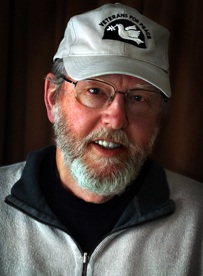Thanks to all the coverage and 400 complaints, the NYPD has had to back off its initial dismissals that all the pepper spraying was "appropriate" and declare it will open an investigation [4], especially of Deputy Inspector Bologna, who, according to The New York Times, "works in counterterrorism." O'Donnell was rightfully skeptical such an investigation would be anything but a traditional whitewash. A department spokesman still insisted that Bologna's actions were "motivated by his concern for the safety of officers under his command and the safety of the public."
What's going on here?
The best explanation for all this is in a 1990 book called The Police Mystique: An Insider's Look At Cops, Crime and the Criminal Justice System by Anthony Bouza, a man who served in a host of leadership roles in the NYPD, closing his career as chief of police in Minneapolis. The "mystique" he describes involves the ironic power of the cops at the bottom of the police hierarchy and the great discretion extended to them to accomplish their mission.
Here's some of Bouza's insights gained from 36 years managing cops:
"[Police] work is peculiar in that the greatest power and autonomy exists at the lowest rank level. ... The system, in order to accommodate the need for action, is notably understanding of the errors that are bound to occur. Thus cops develop the sense that they can exercise power without too great a risk of being called too strictly into account for its use."
"Cops don't take real or imagined assaults on their authority lightly. ... A favorite ploy [of experienced cops] is to provoke an angry citizen into sufficiently loud outbursts to justify an arrest for disorderly conduct. The challenge is to push the target over an imaginary line that instinct will tell him or her constitutes a breach of something. The ability to maneuver the unwary into a trap is well known to cops but rarely realized by outsiders. ... Their temptation to cow those whose behavior they're trying to control into compliance often proves irresistible."
"[Cops have] the additional comfort of being able to rely on the substantial tolerance of a system that wants action and knows that it must be willing to tolerate errors in order to get it."
"Police power assumes its most formidable aspect when cops deal with the underclass. This is the group they've been pressured, implicitly, to control. ... A society, for example, that permits scores of millions to be undereducated and unemployed will not be patient with those who call upon it to attack these ills with more equitable distributions of wealth, social programs, and other "liberal' schemes. ... The overclass prefers to see the problems attacked through the highly visible "law-and-order' methods that promise easy solutions."
Next Page 1 | 2 | 3 | 4 | 5 | 6 | 7
(Note: You can view every article as one long page if you sign up as an Advocate Member, or higher).




